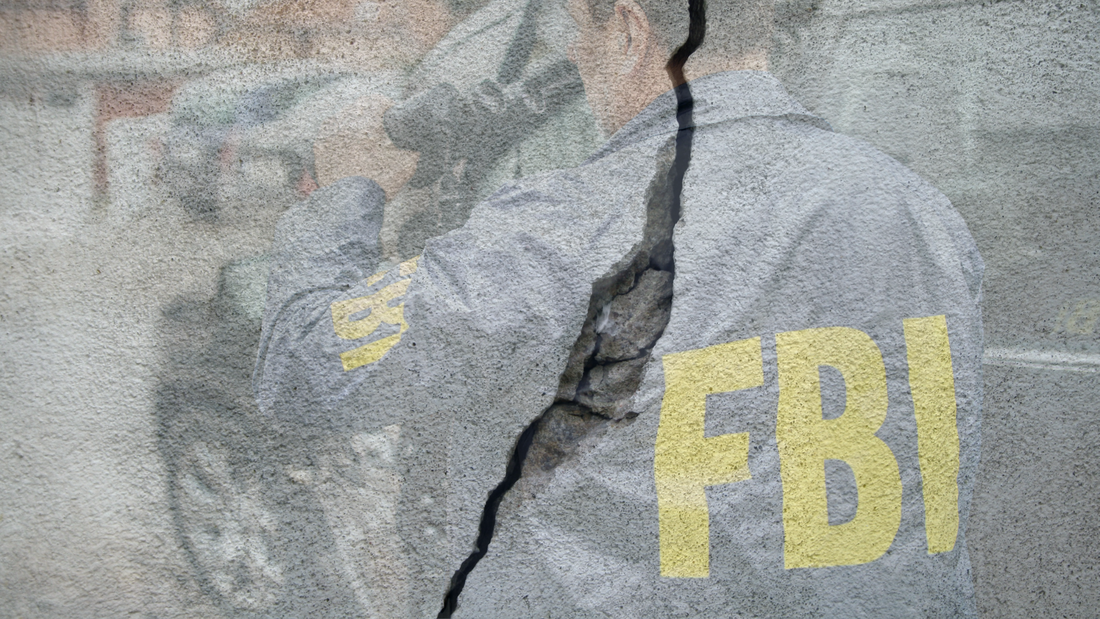|
Charles C.W. Cooke in National Review recently penned a provocative essay that says what some conservative Republicans and progressive Democrats are thinking – dismantle the FBI!
Cooke makes a case that ever since J. Edgar Hoover took over the Bureau of Investigation, the FBI has been “a violent, expansionist, self-aggrandizing, and careless outfit that sits awkwardly within the American constitutional order.” Cooke presents the FBI’s parade of horribles: J. Edgar Hoover presented President Truman with a plan to suspend habeas corpus and put 12,000 Americans into military facilities and prisons at the outbreak of the Korean War. The FBI under Hoover’s leadership tried to convince Dr. Martin Luther King Jr. to commit suicide. It helped presidents destroy their enemies and used blackmail to intimidate the FBI’s critics (paranoia fueled from the likely fact that Hoover himself was eminently blackmailable). It doubled down on a macho confrontation with David Koresh, clearly a psychopath, leading to the deaths of 75 people, 17 of them children. We would add to that list a bureau headquarters that actively blocked investigations from the field that could have stopped 9/11. Many have more recent reasons to suspect the FBI is rigging its investigations. In recent years, an FBI lawyer was caught and convicted of presenting altered evidence and lying to the Foreign Intelligence Surveillance Court in an effort to hide Carter Page’s service to the CIA. The FBI today has excellent justification to pursue those who invaded and trashed the U.S. Capitol on Jan. 6, and perhaps reason to pursue an investigation of former President Donald Trump’s handling of classified material – but these investigations will always be suspect to millions of Americans because of the FBI’s involvement in partisan forgery and in peddling the Steele Report, which the FBI knew at the time was unreliable. On the other side of the ideological fence, the FBI has employed invasive surveillance techniques to spy on Americans who exercised their First Amendment rights by protesting police misconduct. So Cooke’s cry to dismantle the FBI, once a fringe opinion, is sure to have resonance with many on the right and left. As outrageous as the FBI has been at times, however, we counsel critics remember its value in keeping us safe from terrorists, human traffickers, cyber-criminals and foreign intelligence agents from Russia and China. And make no mistake, Russian and Chinese agents and their subordinated or blackmailed helpers are in America in force and doing great harm to our country. Fighting these threats are some of the most capable and patriotic men and women we’ve ever met. So what to do? Cooke offers a list of potential reforms he had toyed with before deciding to argue for the wholesale dismantlement of the FBI. Cooke’s list is well thought-out and worthy of a second look and of being quoted at length:
We endorse Cooke’s strong list of reforms, to which we propose two of our own.
In looking at the history of the FBI, strong leadership has often come from its field offices. But leadership in the top tiers of the J. Edgar Hoover Building has shown itself to be entrenched with Washington power-seeking and socially enmeshed with media and political circles. If one wants to bring about change, perhaps a good place to start would be to divert resources taken up by HQ and spread them out of Washington and into the field offices. Andrew McCarthy, in a reply to Cooke in National Review, promotes the idea of separating the intelligence function of the FBI from its law enforcement function. This would return the FBI to being an agency dedicated solely to law enforcement. It would create an American version of the UK’s MI-5 for the purpose of counterintelligence. Like MI-5, the new agency would have no police powers (though the creation of a 19th intelligence agency in the U.S. government would undoubtedly bring fresh concerns about surveillance and privacy). Another needed change would be to instill into the culture of headquarters something similar to that of the senior ranks of the U.S. military, which eschews any sign of partisanship. Many generals and admirals will not discuss their political views. Some make it a point of pride not to vote. This may be asking too much of civilian officials, but if an agent is assigned to a team that deals with political crimes, with First Amendment implications that resonate nationally, being an outspoken partisan should be reason enough for an immediate transfer to some other important line of duty. Comments are closed.
|
Categories
All
|


 RSS Feed
RSS Feed